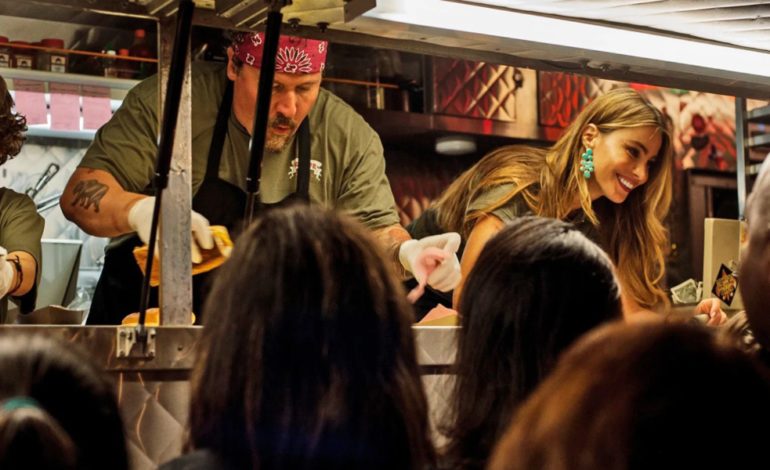

It’s baffling how something like The Bear can go from so incredibly beloved to the point where you can’t go to work without being asked by coworkers if you’ve seen it to it becoming so vehemently despised seemingly overnight. As the saying goes, how the tables turn. Alright, maybe the turn wasn’t so much overnight but rather over the course of ten episodes. But we’re not here to talk about the flawed but still salvageable state the show is in now. Before we get started, kindly get into your DeLorean, Chernobly-laced hot tub, or Klingon Bird of Prey as it slingshots around the sun and rewind the clock six months to when the show’s biggest problems were not having enough of Chef Terry and everyone hating Claire for some reason—say what you will about her, but can we all be adults and admit that Fak’s brother is way more annoying? Team Claire, all the way.
The double-edged sword of the series has always been its ability to create the stomach-churning anxiety reserved for how most introverts feel when entering a store with greeters by the entrance (you know who you are). Its precise execution makes for stellar binge-watching but not always for light casual viewing. Nobody watches “Fishes” deliberately, let alone for white noise when they’re doing stuff around the house. So what if you were told that you could watch a movie that has a similar level of excitement of being in a kitchen as The Bear, with none of the aggressive anxiety that goes along with it? Did your mind naturally work its way around to Chef being the answer due to the title? Well, congratulations on being lured in by false pretenses; we’re actually talking about Burnt…for real, though, we are talking about Chef, but Burnt is pretty underrated. Did you know it was written by the same guy who created Peaky Blinders? Crazy. Anyway, how was your weekend?
Released in 2014, Chef was writer/director Jon Favreau’s return to form with the mid-budget comedies that kickstarted his career, notably with his screenwriting debut, Swingers. Chef came out after a couple of his financially successful but critically lukewarm outings like Cowboys & Aliens and Iron Man 2, so, as many have pointed out, a smaller-budgeted film was like the filmmaking equivalent of the food truck that his character, Carl Casper operates in the latter half of the film. Much like the food truck, Chef did some decent business, garnered plenty of positive reviews, and inadvertently skyrocketed the popularity of Binging With Babish. So, needless to say, we owe Chef a great deal.
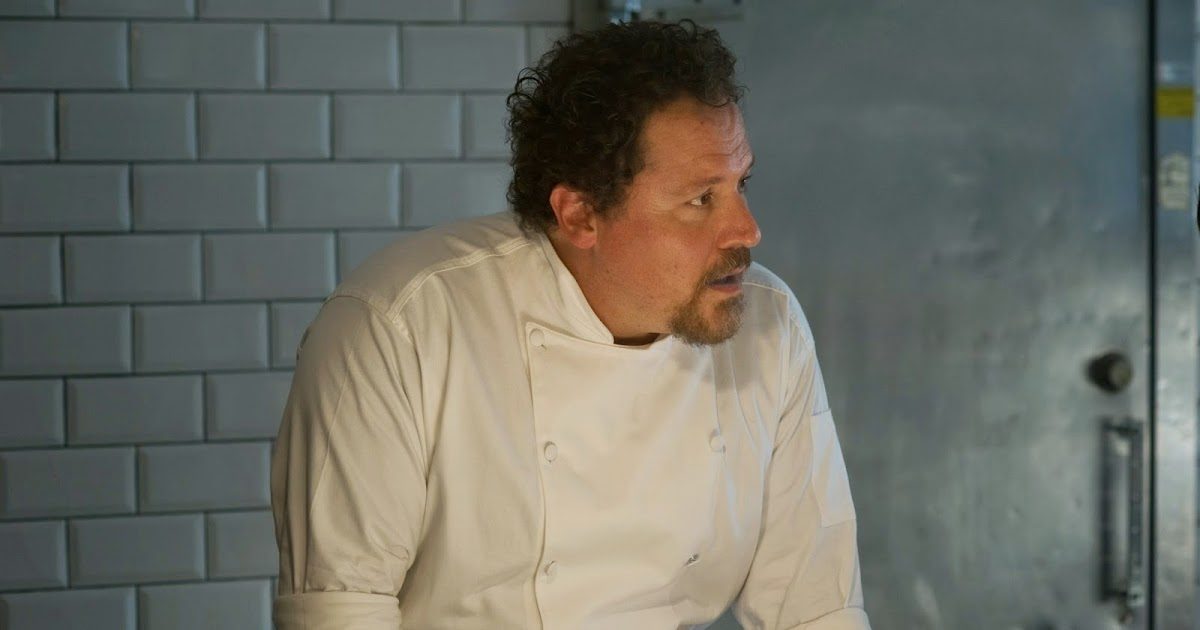

Going back to The Bear for a minute, what makes it so great and entertaining to watch—don’t forget, we’re still living in late May/early June—is it acts as a window into the culinary world. It lets you live vicariously through these characters, experience the hustle and bustle of the environment, and hear the jargon (great word) without also having to experience the exhaustion and intensity in person. Chef works in the same way, but tonally and stylistically, they couldn’t be more opposite. Whereas The Bear focuses on showing cooking as a source of suspense, Chef shows it as a focal point of passion and creativity. The stakes get higher as Carmy’s restaurant gets closer to opening, but the stakes become more mellow as Carl’s food truck opens for business. Chef is a comedy; The Bear is a “comedy” in that when you call it a comedy, you have to use an upper inflection, which is the verbal equivalent of an asterisk. It’s definitely funny, but the heavier dramatic moments are more likely to stick with you than the comedic ones. The main opposing difference—or the reverse of whatever you call the overlapping section of a Venn diagram—is the two tattoo-armed lead characters, Carmy and Carl. One is a man whose focus on being the best comes from a place of anger and abandonment, while the other becomes the best because he loves what he does. Their outlook on their work affects how they perceive their careers. One is a burden, and the other is a blessing, and those two contrasting viewpoints echo throughout their stories.
Carmy is a product of his surroundings. He’s aggressively anxious, socially awkward, and self-destructive. The only thing he excels at is his skills in the kitchen, but less so in collaborating with the people who work alongside him. He expresses himself through culinary creativity because he doesn’t know how to do it any other way. While this could be a constructive outlet to do that, the journey that got him to the level of mastery stems from a place of abandonment by his older brother Michael (Jon Bernthal), as described in his monologue from the season one episode, “Braciole,”
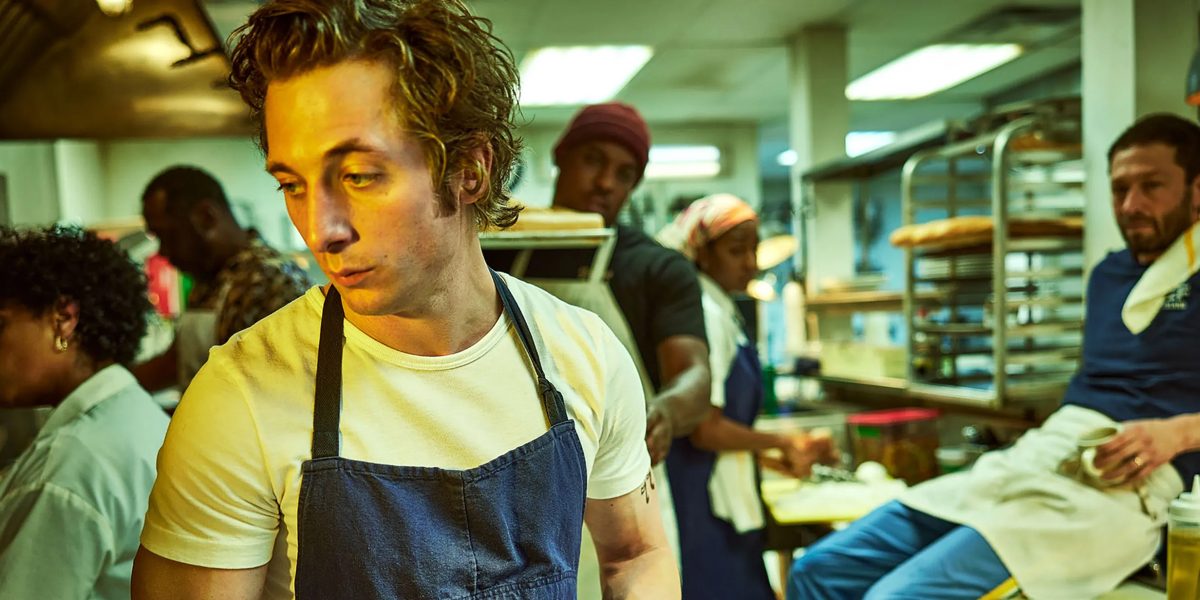

“He just cut me off cold, and that hurt, you know? And I think that flipped a switch in me where I was like, okay, f*ck you. Watch this. And because we had this connection through food and he had made me feel so rejected and lame and shitty and uncool, I made this plan where I was going to go and work in all the best restaurants in the world. You know? Like, I’m going to go and work in real kitchens. Like f*ck mom and dad’s piece of sh*t, right?” Because his skills developed from a place of resentment and negativity, that chip on his shoulder is ever present throughout his time working in the kitchen. If you can find a moment of him working and smiling, or just smiling at all, you have eagle eyes because while he may be the best in the world, he looks consistently miserable and on edge.
Carl is nothing like Carmy—sans their alliterative first names and the previously mentioned inked upper body limbs. Unlike Carmy, Carl loves his job. He LOVES it. Even though his personal life isn’t in order either. He’s divorced, he doesn’t connect with his son—Amazon drivers don’t drop off packages as quickly as he unloads this kid onto the curb—and he has a crummy apartment (by movie standards). He’s a master chef, but unlike Carmy, he didn’t force himself to become the best; it just happened organically, and he doesn’t take it for granted, “Everything good that’s happened to me in my life came because of that. I may not do everything great in my life. Okay, I’m not perfect….But I’m good at this….I get to touch people’s lives with what I do, and it keeps me going, and I love it.”


You can see the difference it makes in the film’s numerous cooking montages. Carl isn’t smiling per se, but he is 100% hyper-focused on what he’s doing and handling everything with precision and care. It’s an added note that before you get to the food truck, the film never shows Carl cooking on the clock. He’s either doing R&D after hours at the restaurant, prepping before they open, or cooking at home, with the most famous examples of the latter being when he makes the most incredible grilled cheese in history—the ones in Anyone But You and The Devil Wears Prada are for half-steppers—and Pasta Aglio e Olio, also known as the scene wherein every guy watching immediately made a mental note that they really should learn how to cook (you know who you are, too). Carl doesn’t cook purely when he’s getting paid; he does it any chance he gets.
You don’t see Carmy doing that in his spare time. Aside from the time you see him cook alongside Michael while he’s telling his Bill Murray story—presumably before Michael locked him out—and when he makes dinner for Claire Bear after the successful fire suppression test, Carmy steers clear of cooking when he’s not at the restaurant. The series even makes a point of showing that while at home, he doesn’t cook for himself. Instead, he eats a simple dinner of a PB&J, Doritos, and a Coke while inadvertently making a calming ASMR video for millions to enjoy.
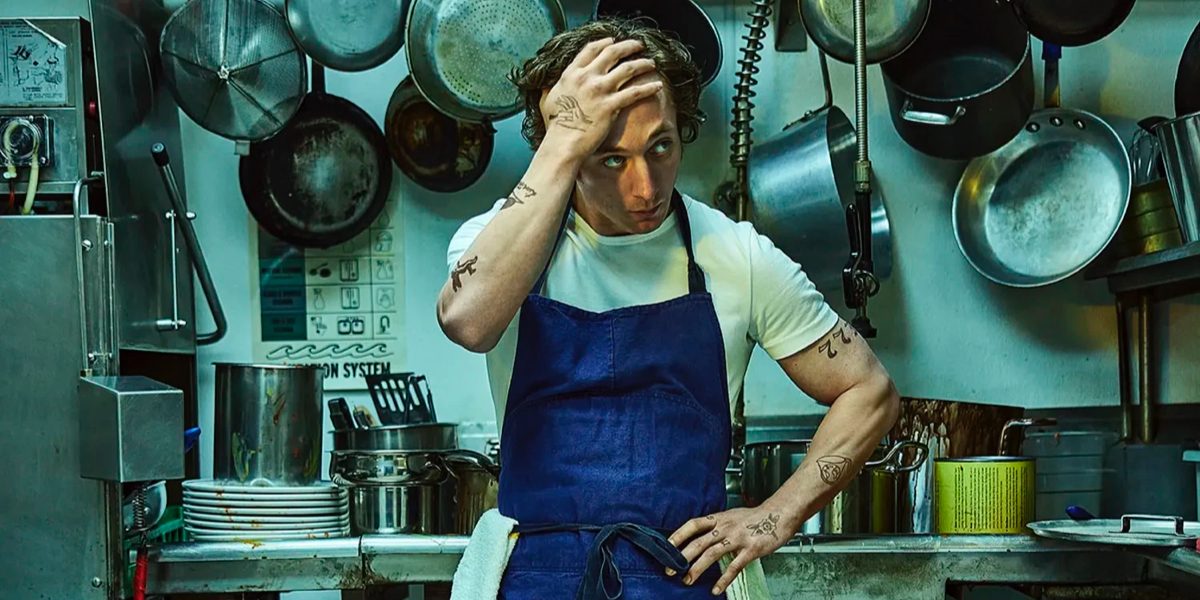

Speaking of videos, there is a plentiful amount of compilation videos for the cooking montages peppered in—proper play on words right there—throughout Chef. It’s not just fun because—just to be clear, the proper play on words just then was due to the use of the word ‘pepper’ since we’re talking about food. Okay, glad we’re on the same page—anyway, it’s not just fun because food porn is a widespread thing that people enjoy. It’s showing off a guy who knows exactly what he’s doing, and the movie is taking its time for you to soak in the care he’s taking to do his job right. Unlike The Bear, where cooking scenes are often heavily edited with inserts and close-ups to give that heightened sense of anxiety the characters—mainly Carmy—are feeling, the cooking in Chef is more laid back. An upbeat song always accompanies the scenes, and while the editing is still relatively quick, it gives the moments a sense of energy and fun. It’s going fast because Carl is going fast, and the reason he’s going fast is because he’s in his own little bubble, and he’s at complete peace with himself and the universe, and everything is as it should be for him. On top of that, the food is shown in an alluring way and you get to see him lovingly assemble everything. It’s obvious he’s not just making food; he’s making art.
Besides the night and day difference between the two leads, the drastic tone difference comes from the sense of stakes. In The Bear, it feels like everyone is always on DEFCON 1. Do you know why those scenes of Sydney making an omelet, Luca teaching Marcus how to make desserts, or Richie talking to Friend of the World, Olivia Colman, are so nice and wonderful? Because they’re calm and meditative moments where no one looks like they’re going to pop a blood vessel from screaming at each other, and no one is panicking that their restaurant might go under. Moments of calm and collectedness on the show aren’t the norm; they’re the exception. When things go wrong in The Bear, it doesn’t feel like a slight setback; it feels like people’s worlds are shattering around them. One of the tensest moments in the series is the fire suppression test because not only if they fail, they won’t be able to open the restaurant, but it also shows the baggage each character carries with them. Sydney is already a failed small business owner, Marcus’ mom is terminally ill, Richie is divorced and insecure about his relevance to the restaurant, and Fak has…also presumably experienced some form of hardship in his life. Even when there isn’t a central point of conflict for the characters to be stressed about, there’s always a constant sense of dread that something could go wrong.
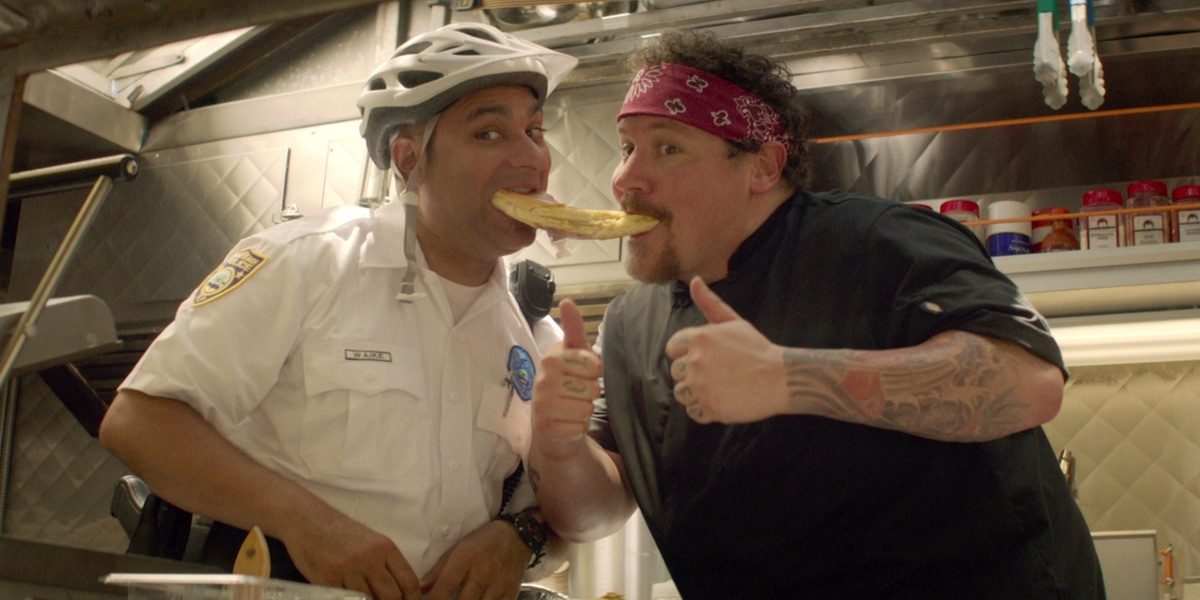

Here’s a hypothetical for you: Can you have a movie that has next to no conflict throughout the runtime and still be entertaining? Apparently. Yeah, because Chef has next to none, and it’s a total joy to watch. There may be two or three harsh moments in the entire movie, but the rest is positive and uplifting, and by the time you get to the food truck, it’s all about Carl hanging out with his son, Percy, and his buddy Marty, and things keep getting better for him because he found a way to do what he loves and be his own boss. After that, it’s just scene after scene of things going great or something funny happening. Usually both. Honestly, if you can watch Jon Favreau and John Leguizamo sing along to Hot Brass 8 Band’s rendition of ‘Sexual Feeling’ after doing business in New Orleans without smiling…you know what? It’s actually hard to think of a second half to that sentence because no one has ever had any other response to that scene. Everyone loves that moment. It’s a very lovable moment. Why aren’t you watching it right now? Here’s a link to the scene. Watch it right now and come back. We’ll still be here after you do. We’re almost done anyway.
Did you watch it? It’s just delightful, right? John Leguizamo is so great as Marty; sure, he’s had some misfires in his career, but in Chef, he immediately elevates every scene he’s in. The big takeaway from Chef is that it’s an absurdly happy movie, and the deeper message behind it is that you can always turn things around and make things better for yourself. That’s what makes it so endearing and rewatchable. This isn’t all to say that you should watch it instead of The Bear or that its optimistic tone makes it somehow superior to the show. Chef and The Bear go for entirely different reactions from the audience and do it exceptionally well. But there are people who’ve worked in kitchens and customer service who will refuse to watch the show because of the black cloud of the “Review” episode that lingers over the entire first season. Do you get sweaty palms watching that episode? It’s weird if you don’t. For those who’ve steered clear of The Bear for that reason or if the time commitment of watching two seasons and powering through a rocky third season is too much, Chef is an upbeat and hopeful alternative that can give you the energy of the kitchen without the worriment to go with it. You also still get your Oliver Platt fix, so everyone wins.
…We’re back in the present; you may proceed with your previous notions about season three.
